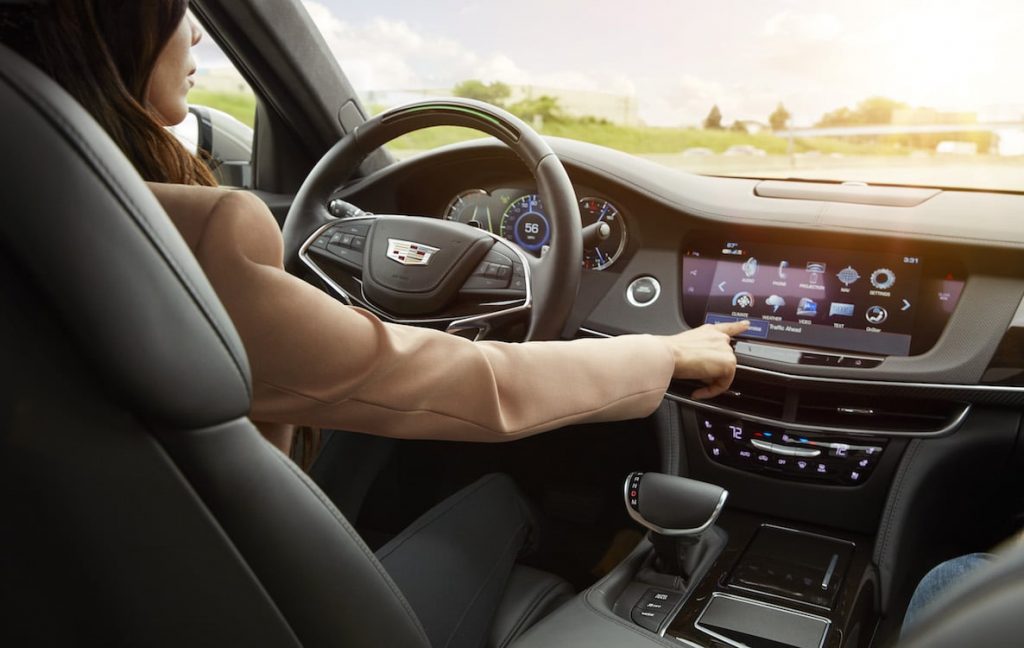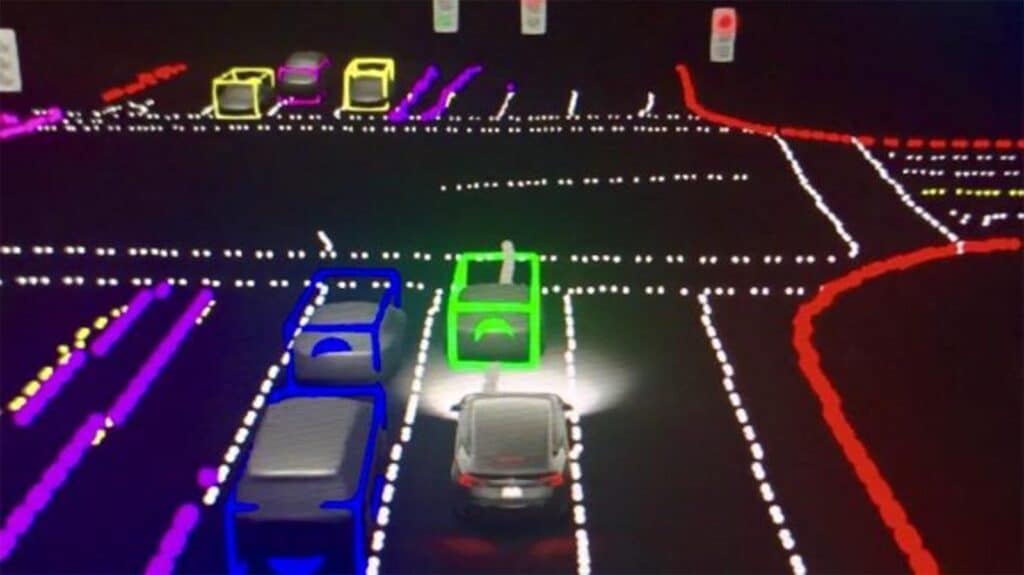In the race to put self-driving vehicles on the road, General Motors may be ready to take the lead with the new Ultra Cruise system it plans to put on the road by 2023.

The new system will increase by tenfold the number of miles of roads GM’s Super Cruise system can operate on – and where the current system only can operate on limited-access roadways, Ultra Cruise will cover “every road including city streets, subdivision streets and paved rural roads, in addition to highways,” GM said in a statement announcing the new technology. At launch, Ultra Cruise will operate on 2 million miles of roads, said GM, with a goal of increasing that to 3.4 million.
With Ultra Cruise, GM seems positioned to leapfrog Tesla, the EV automaker that marketed the first “self-driving” system, Autopilot. Despite releasing a new update it refers to as “Full Self-Driving,” Tesla’s technology still requires drivers to keep their hands on the wheel at all times.
“Ultra Cruise is not just a game changer in terms of what it enables − a door-to-door hands-free driving experience − but a technological one as well,” said Doug Parks, GM’s executive vice president of Global Product Development, Purchasing and Supply Chain.
The race for autonomy
The auto industry is in a race to develop autonomous vehicle technology – with the eventual goal of having vehicles operate without the assistance of a human driver. GM’s San Francisco-based Cruise subsidiary recently won approval from the State of California to test prototype vehicles that don’t even have a steering wheel or other driver controls. But most experts believe that it will be late in the decade before such systems are ready for widespread use.

In the meantime, the focus is on more limited systems that can reduce the role of the driver – though a motorist would still need to be ready to take control in an emergency, or if the vehicle were to travel outside a “geofenced” area.
A number of manufacturers are developing these systems – known in industry parlance as “Level 2 autonomy.” Tesla was first to market with the original Autopilot, GM following with Super Cruise which it is now rolling out on a wide range of vehicle lines.
Both have significant limitations and make various trade-offs. Tesla has dubbed the latest version of Autopilot “Full Self-Driving,” and many owners have been using the system hands-free. Some have been recorded going so far as to jump into the back seat while the vehicle is moving. But the automaker actually stresses that motorists need to maintain at least a loose grip on the wheel.
Tesla v GM
GM claims drivers actually can take hands off the wheel using Super Cruise. But the system is restricted to about 200,000 miles of U.S. and Canadian roads. And the GM system uses a camera to ensure that the driver remains alert and in position to take over quickly, if necessary.

Tesla has, until recently, not monitored the driver. But it plans to do so after coming under fire for the lax way in which many drivers use Super Cruise. In fact, the National Highway Traffic Safety Administration is conducting a probe of Autopilot in the wake of several dozen crashes, a number of those involving Tesla vehicles impacting stationary emergency vehicles.
“The way Tesla is doing it, there always will be error problems,” said Sam Abuelsamid, principal auto analyst with Guidehouse Insights.
Tesla relies on the data gathered by a network of cameras to operate Autopilot. GM, on the other hand, uses radar, as well as ultra high-definition street maps, with Super Cruise. And the Ultra Cruise system will add LIDAR, a 3D laser technology.
“This is a more robust solution,” said Abuelsamid. “They’ve taken a safer approach (even as they) expand tenfold the number of roads they can use Ultra Cruise on.”
No rollout roadmap – yet
The GM system will be able to recognize street signs and traffic signals, as well as pedestrians, bicyclists and animals. And it will be able to handle pretty much any sort of situation that a human driver would normally be required to negotiate, according to GM.
The automaker hasn’t provided a specific roadmap for rolling out Ultra Cruise but it’s expected to follow the same model used for the original Super Cruise system. That would begin with the flagship Cadillac brand and then expand to other GM brands.
Motorists pay additional fees for vehicles equipped with the basic Super Cruise hardware and GM recently announced that it will charge a monthly usage fee, as well. Tesla, Ford and other manufacturers are adopting similar pricing models.